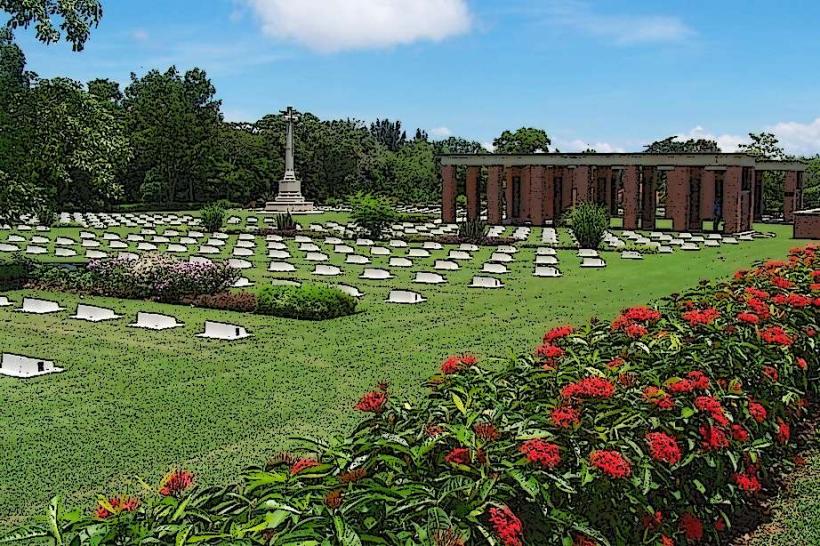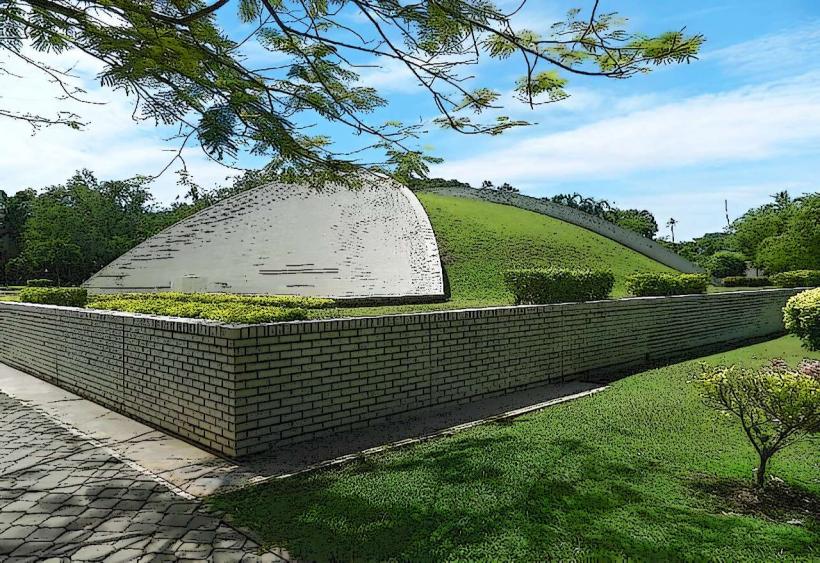Information
City: LabuanCountry: Malaysia
Continent: Asia
Labuan, Malaysia, Asia
Labuan is a Federal Territory of Malaysia comprising one main island and six smaller islands off the coast of Sabah. It functions as a premier International Business and Financial Centre (IBFC), a major deep-water port for the oil and gas industry, and a Duty-Free Zone.
Historical Timeline
Ceded to the British by the Sultan of Brunei in 1846, Labuan was intended to be a coaling station and a second "Singapore." During WWII, it was the site of the Japanese surrender to Australian forces in 1945. It was part of North Borneo (Sabah) before being ceded to the Federal Government in 1984 to become a federal territory. In 1990, it was designated as an international offshore financial center.
Demographics & Population
The population is approximately 105,000. The demographic is a mix of Malays (primarily Kedayan and Brunei Malay), Chinese, and a high percentage of international expatriates working in the financial and maritime sectors. The economy is driven by offshore banking, insurance, ship repair, and oil and gas logistics.
Urban Layout & Key Districts
Victoria (Labuan Town): The main urban center, home to the financial district, duty-free malls, and the ferry terminal.
Financial Park: A massive complex housing the offshore banks, corporate offices, and the largest shopping mall on the island.
Layang-Layangan: A coastal area on the west coast known for its beaches and WWII memorials.
Kampung Air (Water Village): Traditional stilt house settlements (Pungut and Bebuloh) located near the town center.
Top Landmarks
Labuan War Cemetery: The largest war memorial in Malaysia, containing the graves of 3,908 Allied soldiers.
The Chimney: A $32$ m red brick tower from the 1800s; its original purpose remains a mystery, though it is linked to the island's coal mining era.
Labuan Marine Park: Comprising Pulau Kuraman, Pulau Daat, and Pulau Rusukan Besar; renowned for snorkeling and wreck diving.
Surrender Point: The historic location where the 37th Japanese Army officially surrendered to the Australian 9th Division.
Labuan Museum: Located in a colonial-era building, detailing the island's history from the Sultanate of Brunei to the present.
Transportation Network
Air: Labuan Airport (LBU) provides daily connections to Kuala Lumpur, Kota Kinabalu, and Miri.
Sea: The Labuan Ferry Terminal is a critical hub for high-speed passenger ferries and vehicle ferries connecting to Brunei, Kota Kinabalu, and Menumbok (Sabah).
Road: The island has a well-maintained circular road system. Grab and local taxis are the primary transit options.
Regulation: Labuan is a free port; vehicles registered in Labuan have "L" plates and face restrictions for transport to mainland Malaysia.
Safety & "Red Zones"
Maritime Safety: The waters around Labuan are heavy with industrial shipping; recreational boaters should stick to designated marine park zones.
Security: As a financial hub, the island is highly policed and considered very safe.
Environment: Be cautious of jellyfish during the dry season (January–March) at public beaches like Ramsey Point.
Digital & Financial Infrastructure
5G coverage is universal across the main island. The currency is the Malaysian Ringgit (MYR). As a financial center, banking infrastructure is world-class. Duty-Free status makes alcohol, tobacco, chocolate, and perfumes significantly cheaper than on the mainland.
Climate & Air Quality
Equatorial climate: hot and humid ($25^\circ\text{C}$ to $32^\circ\text{C}$). The island experiences oceanic breezes that keep air quality high. It is outside the primary typhoon belt but can experience heavy "Sumatra" squalls.
Culture & Social Norms
Expatriate Culture: Due to the IBFC, Labuan has a more international and "Westernized" social scene compared to mainland Sabah or Sarawak.
Water Village Etiquette: When visiting Kampung Air, remain on the wooden walkways and ask permission before photographing private dwellings.
Cuisine: Specialized in Coconut Pudding, Fresh Seafood, and Lamban (steamed rice in leaves).
Local Cost Index (MYR)
1 Can of Duty-Free Beer: RM 2.50–RM 4.50
1 Local Meal: RM 8.00–RM 15.00
1 Car Rental (Daily): RM 70.00–RM 120.00
Nearby Day Trips
Rusukan Besar Island: Offers pristine white sand and coral reefs, 30 minutes by boat.
Brunei Darussalam: Accessible via a $1$-hour high-speed ferry ride to Serasa terminal.
Facts & Legends
Legend says the "Chimney" has no flue and was never used for smoke, leading some to believe it was a lighthouse or a ventilation shaft for underground mines. A geographic fact: Labuan is one of the world's best wreck-diving destinations, featuring the "Cement Wreck" and the "American Wreck." Historically, the island was renamed "Maida Island" (Pulau Maida) by the Japanese during their occupation, in honor of General Marquis Toshinari Maeda.




